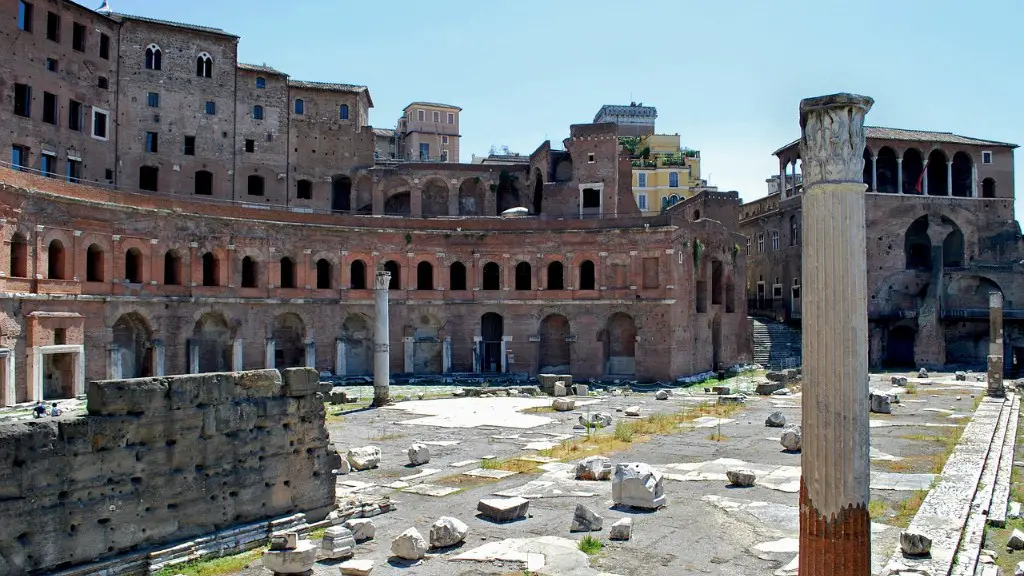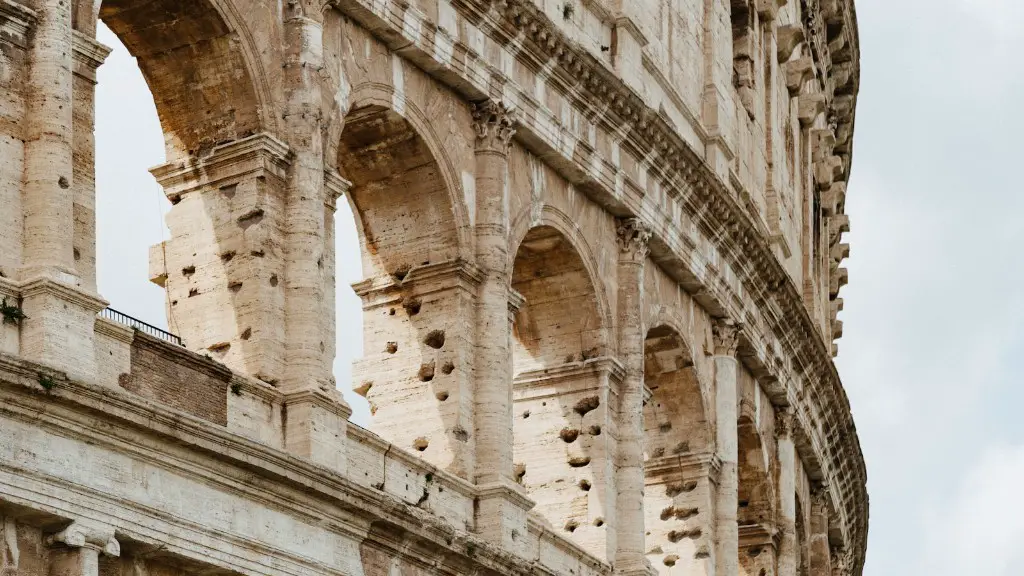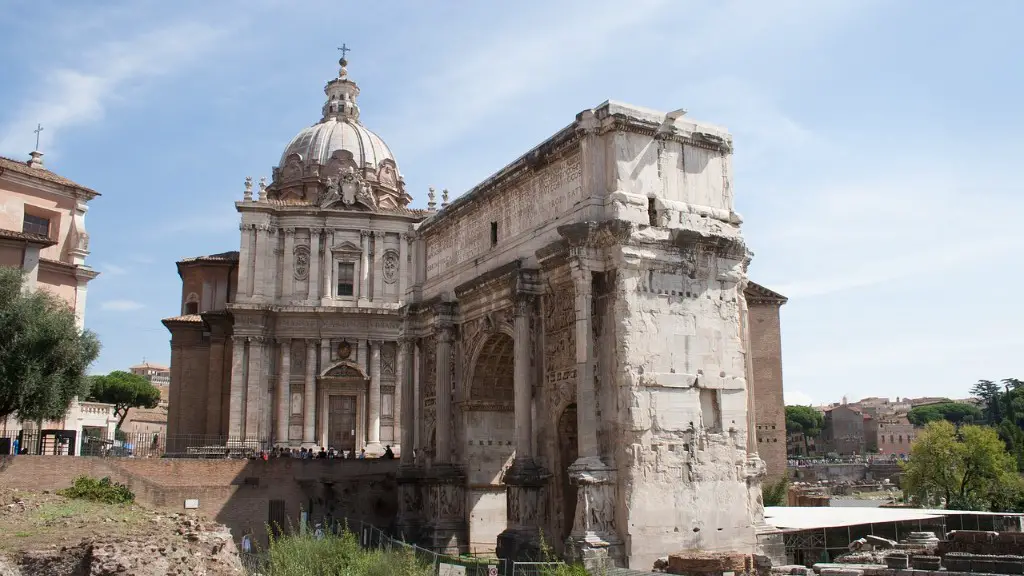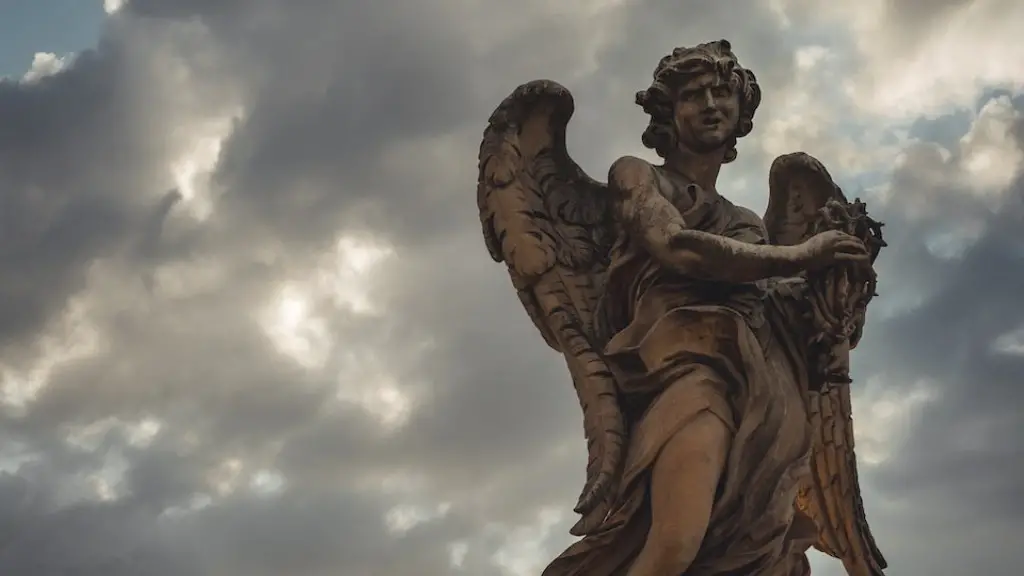Early Roman consuls were the chief magistrates in the Roman Republic and held wide-ranging responsibilities. They acted as judges, governors, and financial officers and had the power to convene the senate and pass laws. Although Roman consuls had a substantial role in politics, the distinctions between the Senate and the consuls became more prominent in the late Republic. This was due to the gradual concentration of executive power in the consuls as well as changes in the Rome’s social and political structures.
A consul was elected every year by the people of Ancient Rome and held office for one year. After his term of office was completed, he became a ‘Consul Emeritus’ – a consular former consul – which gave him certain privileges in old age. During their year as consuls, they held almost absolute power, but could be removed from office by the Senate if found guilty of improprieties. Two consuls were elected together and each had the same amount of power, although a consul was usually subordinate to the other.
Roman consuls were expected to lead armies into battle and were usually voted in based on their leadership qualities.Before winning office, some candidates required a large benefaction from a major patron in order to make their candidacy viable. As such, the role of a consul was often considered a prestigious one, only held by those of the upper classes. It is worth noting that only citizens of Rome could hold this office, as foreign rulers were not allowed to become consuls.
In addition to their political roles, consuls also had a variety of religious responsibilities. They were expected to observe the major holy days, with the most significant being the Vestalia, the Feast of the Dead at the end of June. They were also necessary to preside over all other Roman festivals, including the Ludi Apollinares, the Games of Apollo in July. Ultimately, the purpose of being a consul was to look after the welfare of Rome, often called the mos maiorum, or the way of the ancestors.
The most important aspect of a consul’s job was to keep law and order, particularly in their role as magistrate. They were responsible for making fair judgments in criminal and civil cases, often issuing severe punishments for those who broke the law. They also had the power to veto any Senate decision and could call and preside over meetings of the Senate as well as assemblies of the people. This power was used to ensure that the people were kept compliant with the laws and decrees of the senate.
In terms of military matters, the consuls had absolute power and oversaw the military operations of the Republic. Their primary purpose in this regard was to lead armies into battle and conquer provincial enemies. As a result, consuls were expected to be strong, wise, and courageous leaders, capable of guiding their troops to victory. This was made even more important since individual consuls held the power to make decisions in the field, including matters of strategy and tactics.
Consuls also played an important role in terms of foreign policy and diplomacy, both in terms of interacting with potential allies and enemies alike. They would personally visit other states to negotiate treaties, alliances, and eventually Rome’s expansion throughout the Mediterranean world. In a sense, it could be argued that the success of the Roman Republic in the Ancient World was largely due to the wisdom, courage and diplomacy of its consuls.
Political Implications
The role of the consuls of Ancient Rome had a consequential effect on the political views of the population and gave the upper classes a more prominent position in politics. This was especially so in later years when consuls were effectively the rulers of the Republic, effectively removing the people from politics. This was viewed by some as a loss of liberty and a form of oppression, creating the foundations of political tensions and resentment which eventually led to the fall of the Republic.
The consuls also played a key role in leading the Senate and their decisions played a vital role in determining foreign policy. This meant that they were the ones who brought Rome into conflict or peace with its neighbours, thus creating an unjustifiable large power imbalance with no room for negotiation. This ultimately weakened the Senate and led to a centralization of power in the consuls, paving the way for the eventual fall of the Republic.
Expansion of Rome
One of the greatest factors contributing to the expansion of the Roman Republic was its ability to recruit and appoint capable consuls who were instrumental in leading their forces to victory on the battlefield. This was especially important in terms of foreign policy and diplomacy, where the skill and charisma of a consul could make all the difference in negotiations and agreements. This allowed Rome to expand its borders throughout the Mediterranean world and establish colonies in its name.
The role of a consul was also important in terms of Rome’s internal affairs and keeping a level of law and order. The consuls acted as magistrates and judges, ensuring that criminals were punished and law abiding citizens were protected. This helped to stabilize Rome’s interior and enabled successful colonization, while also creating the socio-economic foundation for a successful empire. It could be argued that, without experienced consuls, the empire may never have developed as it did.
Public Opinion
The public opinion of Roman consuls varied considerably. Generally, Roman citizens regarded the role with a certain reverence, however, there was also resentment of their power among many people. It was largely believed that consuls gained power and prestige through bribery, nepotism, and corruption, an image reinforced by the dominance of the wealthy elite in later years of the Republic. This led to a definite divide between the higher classes and the people and created a form of social segregation that laid the foundations for the fall of the Republic.
Many people also resented the power of the consuls, especially in their military duties. They believed that consuls led reckless campaigns which included massacres and slaughter, reducing the general population to poverty and further destabilizing Rome’s hold on its provinces. This antipathy was reinforced by the Senate’s endorsement of the role, seen to be part of the opulent and privileged social class, causing a deep resentment of the privileged and powerful.
Conclusion
The role of the consuls in Ancient Rome was central to the success of the Republic and its eventual decline. As the chief magistrates of the state, their responsibilities were vast and far-reaching, ranging from leading the senate to leading armies into battle. They also had a powerful influence on public opinion and foreign policy, with many people regarding their decisions with either reverence or resentment. Ultimately, it is clear that the impact of the consuls on Rome was significant and their legacy lives on to this day.



